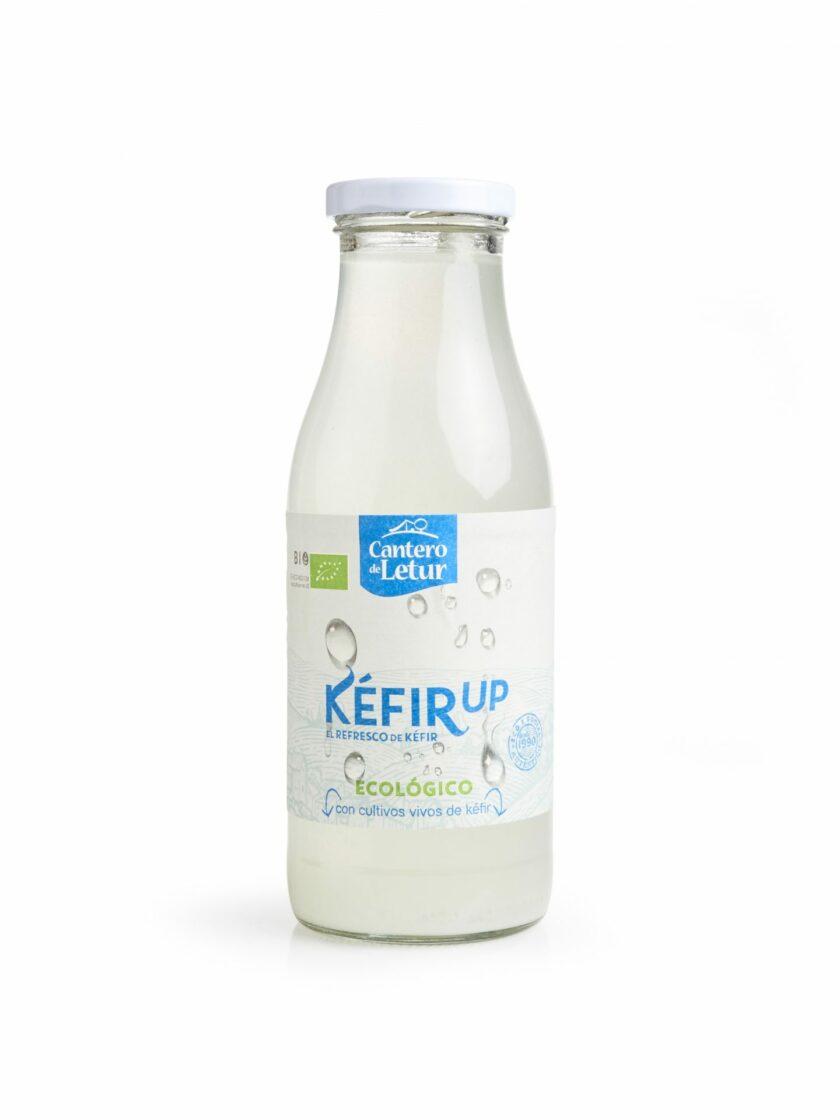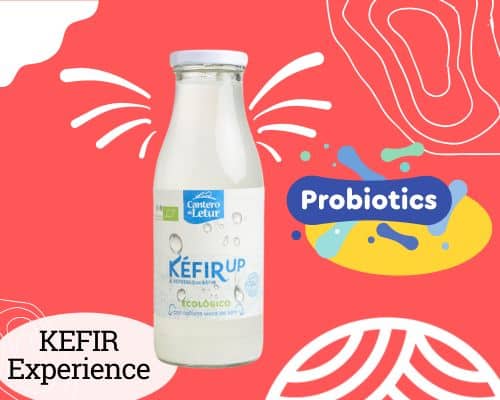Origin and properties of Kefir
Kefir, which was already consumed by the inhabitants of the Caucasus in antiquity and called “grains of the Prophet Muhammad”, derives from the Turkish word “keyif”, which means “to feel good”.
This food, considered a probiotic food par excellence, differs from yogurt in the fermentation process. In Kefir, milk ferments by lactoalcoholic reaction while in yogurt it is only lactic.
The double fermentation of kefir makes it hardly lactose and is much more digestive and tolerable.
Kefir benefits:
- Antioxidant
- Antihypertensive
- Hypocholesterolemic
- Antimicrobial
- Anti-inflammatory
- Hypoglycemic
- Antitumor
- Low caloric intake
- Rich in vitamins and minerals
How can we take Kefir: You can take it alone, with sugar, honey, cereals, muesli, nuts or fruit or even make cream cheese or smoothies or vegetable purees and you can also use it for making pastries.
And what are probiotics?: Probiotics kefir are beneficial live microorganisms found in this fermented beverage.
Probiotics are bacteria and yeasts that can have positive effects on human health when consumed in adequate quantities. They help maintain a healthy balance of bacteria in the digestive system and promote intestinal health. Some of the probiotics present in kefir include species of Lactobacillus, Bifidobacterium, Streptococcus and Saccharomyces, among others.
Take advantage of this offer* and try the benefits Kefir can bring you
Cantero de Letur is a pioneer in organic dairy products and in its manufacture does not use any of the chemical additives, thickeners or stabilizers commonly used in conventional industry and guarantees a totally natural, simple but delicious product, which maintains all the benefits and also promotes a socially and environmentally conscious project.

Kefir Water 500ml Cantero de Letur ECO
Organic dairy products for our health, organic milk is obtained from animals that are treated under the most rigorous principles of animal welfare: plenty of space to exercise and move, guaranteed organic food, stress-free life and good treatment. With this, it has a delicious raw material and more health benefits. “The change from conventional to organic milk would increase the intake of Omega 3 without increasing calories or saturated fat. Half a litre of organic whole milk provides 16% of the recommended daily intake of Omega 3, while conventional milk provides 11%,” says Gillian Butler, Senior Professor of Animal Nutrition at the University of Newcastle. [2]
[2] The study finds clear differences between organic and non-organic products, https://www.ncl.ac.uk/press/articles/archive/2016/02/organicandnon-organicmilkandmeat/
* Offer from 15/7/23 to 30/7/23 or end of stocks






